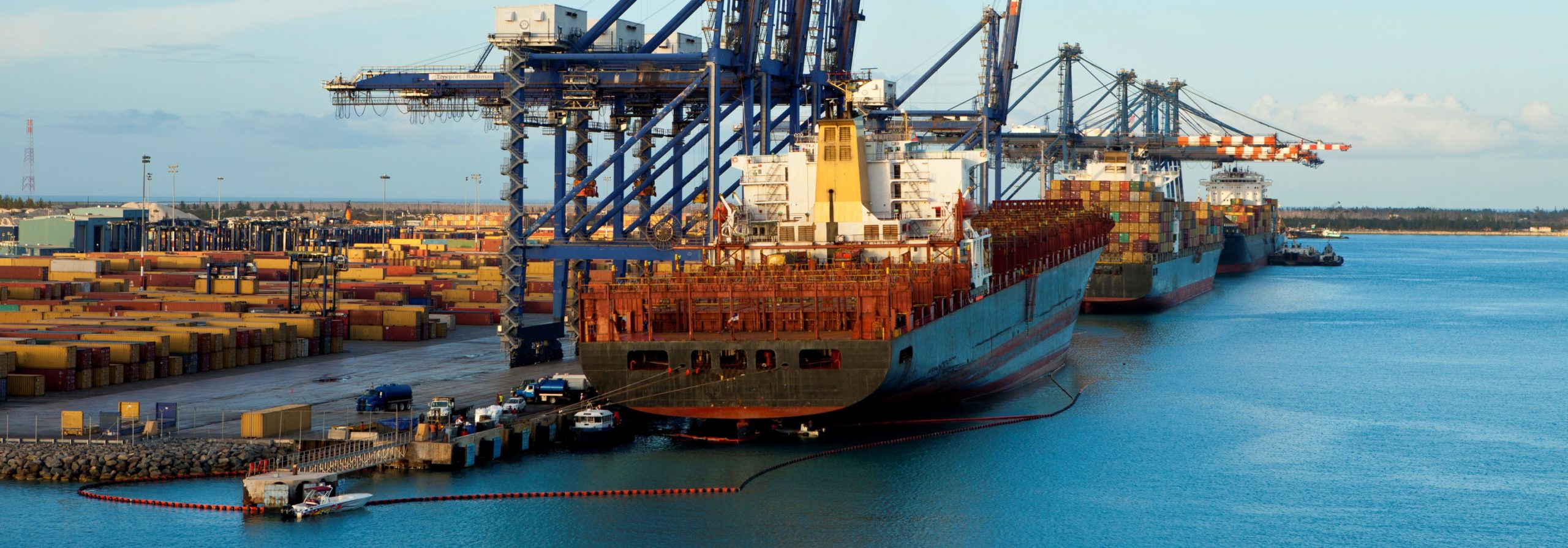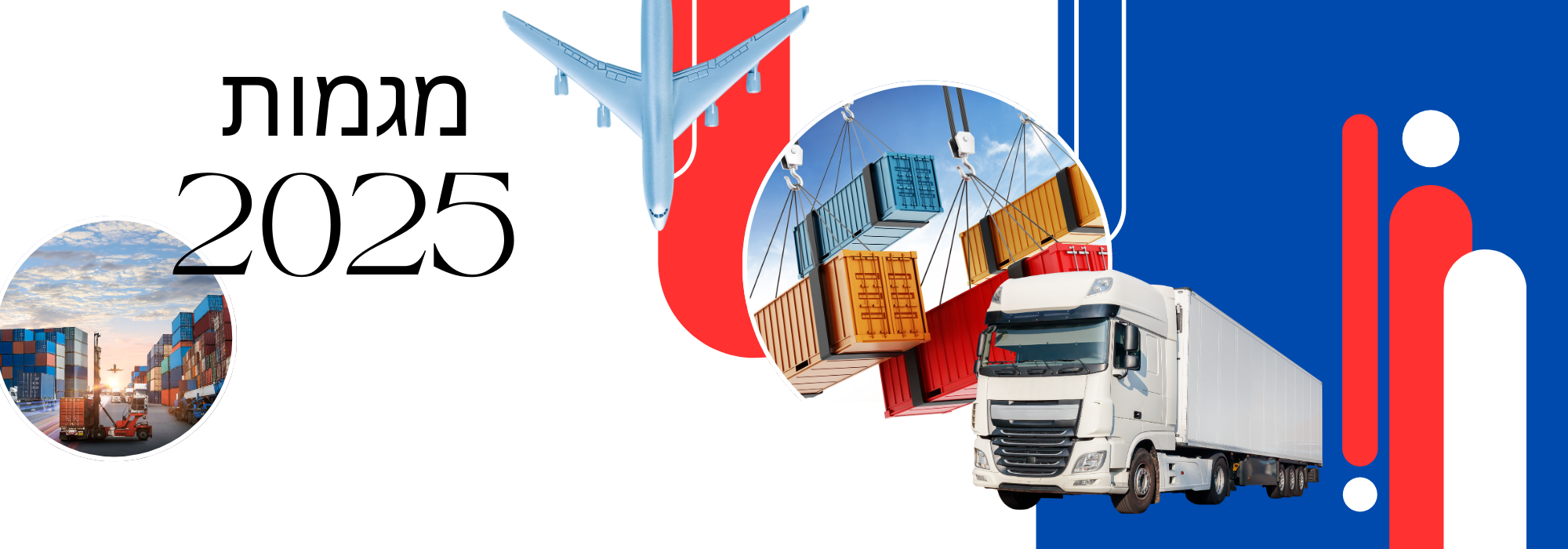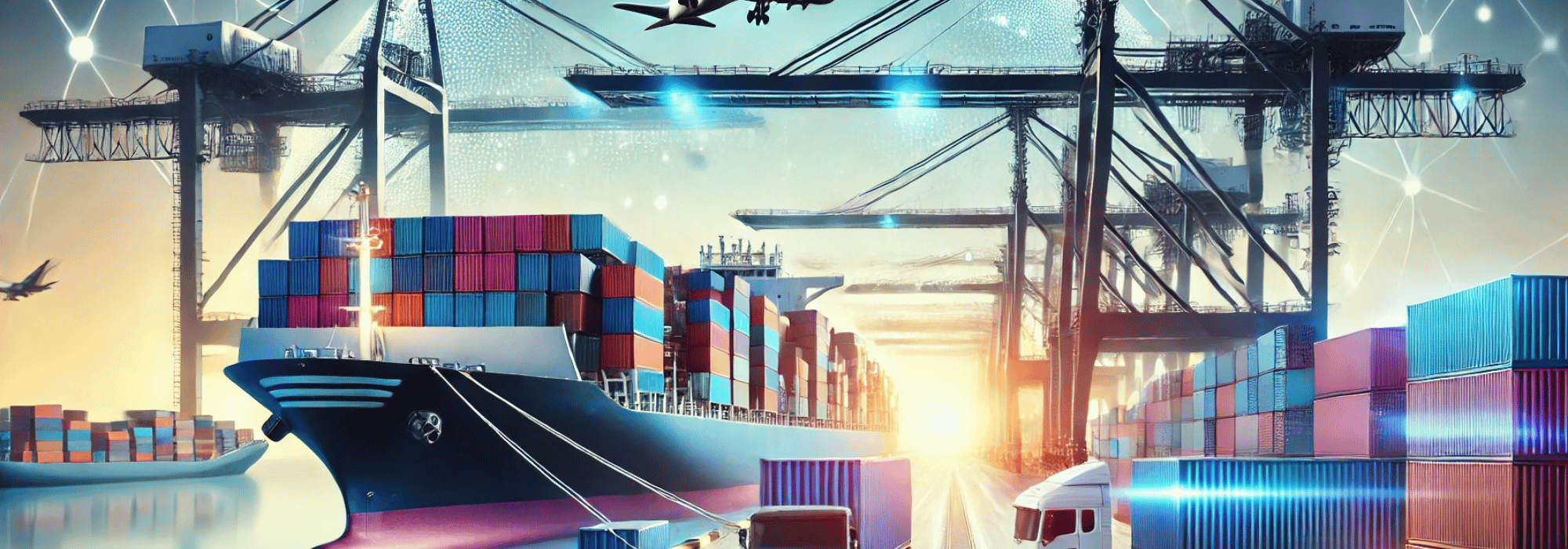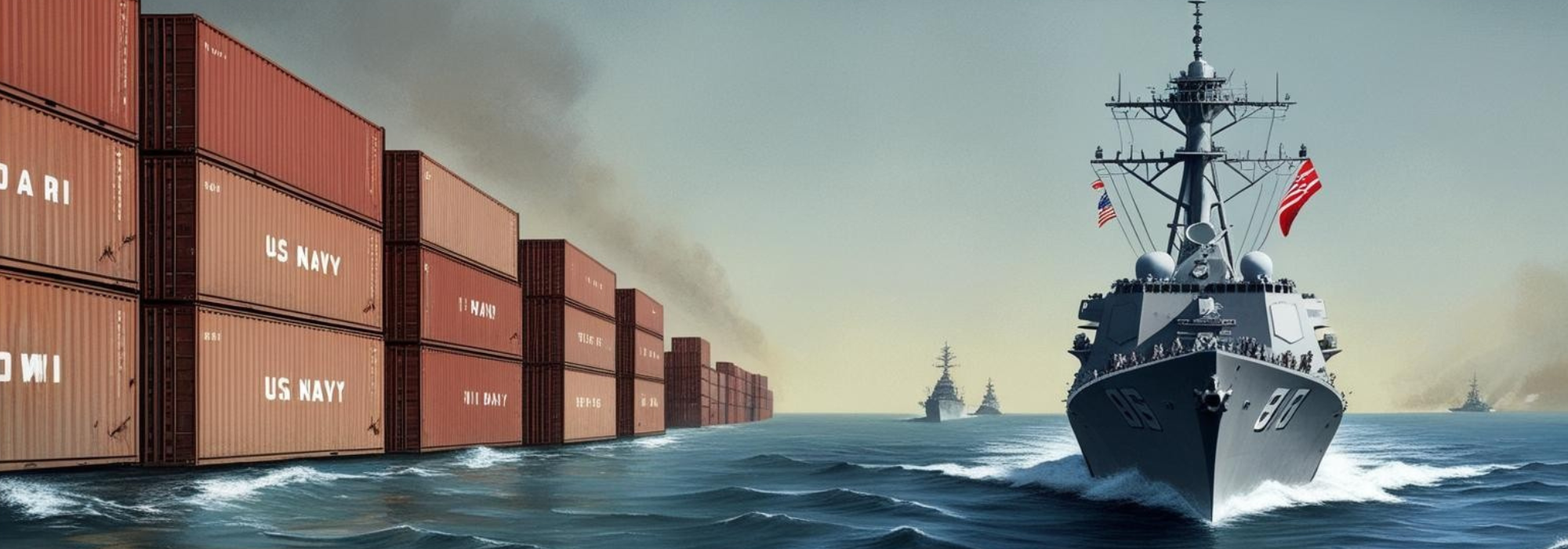In a world where borders are becoming more blurred than ever before, one cannot underestimate the colossal impact of international trade on shaping the global economy. The intricate web of transactions and negotiations that takes place across continents is not merely a series of business deals; it embodies the essence of interconnectedness and mutual prosperity. “Unlocking Success: The Power of International Trade in Today’s Market” delves deep into the dynamic landscape of commerce that transcends geographical boundaries, shedding light on how nations leverage their unique strengths to thrive in the competitive arena. Imagine a scenario where goods, services, and ideas flow seamlessly from one corner of the world to another, fueling innovation, driving economic growth, and fostering cultural exchange. This is the essence of international trade – a symphony of diversity and collaboration that propels businesses towards new horizons. As we navigate the complexities of today’s market, understanding the nuances of international trade becomes not just an advantage but a necessity for those looking to carve a path to success. Join us on a journey through the corridors of global trade, where opportunities are boundless, challenges are formidable, and the rewards are nothing short of transformative.
The Evolution of International Trade: From Ancient Times to the Modern Era
International trade has a rich history that dates back to ancient times. The exchange of goods and services between different regions and civilizations has played a pivotal role in shaping the world as we know it today. From the Silk Road connecting Asia with Europe, to the maritime trade routes that spanned the globe during the Age of Exploration, international trade has been a catalyst for cultural exchange, economic growth, and technological advancements.
In ancient times, international trade was primarily driven by the need for resources that were not available locally. For example, the Egyptians traded with neighboring regions for timber, metals, and other raw materials. As civilizations grew more interconnected, trade routes expanded and became more sophisticated. The Phoenicians, known as skilled seafarers, established trading colonies along the Mediterranean coast and facilitated commerce between different civilizations.
During the Middle Ages, international trade faced various challenges such as political instability and conflicts. However, this period also witnessed significant advancements in trade practices. The Hanseatic League in Northern Europe emerged as a powerful trading alliance that facilitated commerce between its member cities. Additionally, merchants from Venice dominated Mediterranean trade routes and established extensive networks across Europe and Asia.
The modern era brought about a revolution in international trade with the advent of globalization. Technological advancements such as steamships and railways made transportation faster and more efficient. The Industrial Revolution fueled mass production and increased demand for raw materials from around the world. This led to colonial expansion by European powers in search of resources to fuel their industries.
In recent decades, international trade has undergone further transformations with advancements in communication technology and transportation infrastructure. The rise of containerization revolutionized logistics by making it easier to transport goods across long distances efficiently. The internet has enabled businesses to connect with customers worldwide instantly.
Key Players in Today’s Global Trade Landscape
In today’s global trade landscape, several key players shape the dynamics of international commerce. These players include multinational corporations, governments, international organizations, and consumers.
Multinational corporations play a crucial role in international trade as they have the resources and capabilities to operate across borders. These companies often have global supply chains that span multiple countries, allowing them to source raw materials from one region, manufacture products in another, and sell them in different markets.
Governments also play a significant role in shaping international trade through policies and regulations. They negotiate trade agreements with other nations to facilitate the flow of goods and services across borders. Governments may also impose tariffs or other trade barriers to protect domestic industries or address national security concerns.
International organizations such as the World Trade Organization (WTO) and regional trade blocs like the European Union (EU) also influence global trade dynamics. The WTO sets rules for international trade and resolves disputes between member countries. Regional trade blocs promote economic integration among member states by eliminating barriers to trade within the bloc.
Consumers are another essential player in today’s global trade landscape. Their preferences and purchasing power drive demand for goods and services from different parts of the world. Consumer trends such as sustainability and ethical sourcing have also influenced businesses’ strategies and supply chain practices.
Trade Agreements: Strengthening Economic Ties Across Borders
Trade agreements play a vital role in facilitating international commerce by reducing barriers to trade between participating countries. These agreements aim to create a more predictable business environment, promote economic growth, and foster cooperation among nations.
One example of a significant trade agreement is the North American Free Trade Agreement (NAFTA), which was replaced by the United States-Mexico-Canada Agreement (USMCA) in 2020. This agreement eliminated most tariffs and trade barriers between the three countries, promoting cross-border investment and trade.
Another notable trade agreement is the Trans-Pacific Partnership (TPP), which aimed to deepen economic ties among Pacific Rim countries. Although the United States withdrew from the agreement in 2017, the remaining members formed the Comprehensive and Progressive Agreement for Trans-Pacific Partnership (CPTPP), which came into effect in 2018.
Trade agreements not only focus on reducing tariffs but also address non-tariff barriers such as intellectual property rights, labor standards, and environmental regulations. These agreements create a framework for fair competition and ensure that businesses can operate on a level playing field.
The Impact of Technological Advancements on International Trade
Technological advancements have had a profound impact on international trade, revolutionizing how businesses operate and interact with customers worldwide. The following are some key areas where technology has transformed international trade:
E-commerce: The rise of e-commerce platforms has enabled businesses of all sizes to reach customers globally. Online marketplaces like Amazon and Alibaba have connected buyers and sellers from different parts of the world, making it easier for businesses to enter new markets.
Logistics and Supply Chain Management: Technology has improved logistics operations by enabling real-time tracking of shipments, optimizing routes, and automating warehouse processes. This has made international trade more efficient and reduced costs for businesses.
Communication: Advances in communication technology have made it easier for businesses to collaborate with partners across borders. Video conferencing, instant messaging, and email have facilitated seamless communication between suppliers, manufacturers, distributors, and customers.
Data Analytics: Big data analytics allows businesses to gain insights into consumer behavior, market trends, and supply chain performance. This information helps companies make informed decisions and optimize their international trade strategies.
Customs and Border Control: Technology has also transformed customs and border control processes, making them more efficient and secure. Automated systems for customs clearance, electronic documentation, and risk assessment tools have streamlined international trade procedures.
Challenges and Opportunities in the Global Marketplace
The global marketplace presents both challenges and opportunities for businesses engaged in international trade. Understanding these factors is crucial for success in today’s interconnected world.
Competition: The global marketplace is highly competitive, with businesses from different countries vying for market share. Companies need to differentiate themselves through innovation, quality, customer service, or unique value propositions to stay ahead of the competition.
Cultural Differences: Doing business internationally requires an understanding of cultural nuances and preferences. Adapting products, marketing strategies, and business practices to local cultures can help businesses build trust with customers in different markets.
Legal and Regulatory Compliance: Operating across borders means navigating complex legal frameworks and complying with regulations in different jurisdictions. Businesses need to stay updated on international trade laws, import/export regulations, intellectual property rights, and other legal requirements.
Risk Management: International trade involves various risks such as currency fluctuations, political instability, supply chain disruptions, and natural disasters. Businesses need robust risk management strategies to mitigate these risks effectively.
Sustainability: Increasingly, consumers are demanding sustainable products that are produced ethically and have minimal environmental impact. Businesses that embrace sustainable practices can tap into growing consumer segments concerned about social responsibility.
Sustainable Practices: The Future of Ethical International Trade
The future of international trade lies in sustainable practices that prioritize environmental stewardship, social responsibility, and ethical business conduct. As businesses become more aware of their impact on the planet and society, they are adopting sustainable practices throughout their supply chains.
One aspect of sustainable international trade is reducing carbon emissions and promoting renewable energy sources. Businesses are investing in clean technologies, optimizing transportation routes, and exploring alternative energy options to minimize their carbon footprint.
Social responsibility is another key component of ethical international trade. This involves ensuring fair labor practices, promoting diversity and inclusion, and supporting local communities in the regions where businesses operate.
Transparency and traceability are also essential for ethical international trade. Consumers want to know where their products come from and how they were produced. Businesses are implementing traceability systems that provide information about the origin of raw materials, production processes, and supply chain partners.
Sustainable practices not only benefit the environment and society but also offer business advantages. Companies that embrace sustainability can enhance their brand reputation, attract environmentally conscious consumers, reduce costs through efficiency improvements, and gain a competitive edge in the global marketplace.
Strategies for Success in a Competitive Global Economy
In today’s competitive global economy, businesses need to develop effective strategies to thrive in international trade. The following are some key strategies for success:
Market Research: Conduct thorough market research to understand customer needs, preferences, and trends in different markets. This will help businesses tailor their products or services to meet specific market demands.
Partnerships: Form strategic partnerships with local distributors or suppliers who have knowledge of the target market. Collaborating with trusted partners can help overcome cultural barriers and navigate local regulations more effectively.
Innovation: Continuously innovate products or services to stay ahead of the competition. Embrace emerging technologies and trends to meet evolving customer expectations and address market gaps.
Adaptability: Be adaptable and flexible in responding to changes in the global marketplace. This includes being open to new business models, embracing digital transformation, and adjusting strategies based on market dynamics.
Invest in Talent: Build a diverse and skilled workforce that can navigate the complexities of international trade. Invest in training programs to enhance employees’ cross-cultural communication skills, negotiation abilities, and understanding of global markets.
Navigating Currency Fluctuations and Financial Risks in International Trade
Currency fluctuations can significantly impact businesses engaged in international trade. Exchange rate volatility can affect the cost of imported goods, export competitiveness, profit margins, and overall financial stability.
To navigate currency fluctuations effectively, businesses can employ various strategies:
Hedging: Hedging involves using financial instruments such as forward contracts or options to protect against adverse currency movements. By locking in exchange rates in advance, businesses can mitigate the risk of currency fluctuations.
Diversification: Diversifying operations across different markets can help reduce exposure to currency risk. By operating in multiple currencies, businesses can offset losses from one currency with gains from another.
Pricing Strategies: Businesses can adjust their pricing strategies to account for currency fluctuations. For example, they may increase prices when their domestic currency strengthens or offer discounts when it weakens.
Monitoring Economic Indicators: Keeping a close eye on economic indicators such as interest rates, inflation rates, and political developments can provide insights into potential currency movements. This information can help businesses make informed decisions regarding their international trade activities.
The Role of Government Policies in Shaping International Trade Dynamics
Government policies play a crucial role in shaping international trade dynamics. Through trade policies and regulations, governments can either facilitate or hinder the flow of goods and services across borders.
Trade policies can take various forms:
Tariffs: Tariffs are taxes imposed on imported goods. Governments may use tariffs to protect domestic industries, generate revenue, or address trade imbalances. Tariffs can increase the cost of imported goods and make them less competitive in the domestic market.
Quotas: Quotas limit the quantity of certain goods that can be imported into a country. Governments may impose quotas to protect domestic industries from foreign competition or to manage scarce resources.
Subsidies: Subsidies are financial incentives provided by governments to support domestic industries. Subsidies can make domestically produced goods more competitive in international markets by reducing production costs.
Trade Agreements: Governments negotiate trade agreements with other nations to promote economic cooperation and reduce barriers to trade. These agreements aim to create a more predictable business environment and foster economic growth.
Regulatory Frameworks: Governments establish regulatory frameworks that govern international trade activities. These frameworks cover areas such as customs procedures, intellectual property rights, product standards, and environmental regulations.
Conclusion: Embracing the Power of International Trade for a Prosperous Future
The power of international trade cannot be underestimated in today’s interconnected world. It has transformed economies, driven innovation, and brought people from different cultures closer together. As businesses navigate the complexities of the global marketplace, understanding the evolution of international trade, key players, trade agreements, technological advancements, challenges and opportunities is essential for unlocking success.
Sustainable practices that prioritize environmental stewardship and social responsibility are shaping the future of international trade. By embracing these practices, businesses can not only contribute to a more sustainable world but also gain a competitive edge in the global marketplace.
Navigating currency fluctuations and financial risks, as well as understanding the role of government policies, are crucial for businesses engaged in international trade. By adopting effective strategies and staying informed about market dynamics, businesses can thrive in today’s competitive global economy.
Embrace the power of international trade and unlock a prosperous future for your business.



















